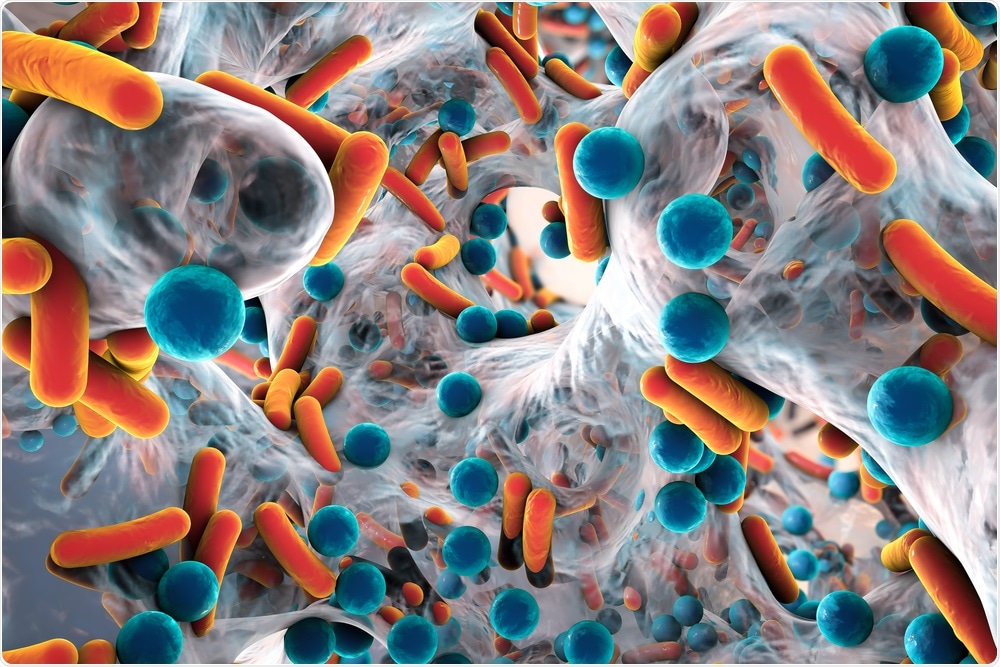A new study suggests that the evolution of antibiotic tolerance requires further investigation if newly designed antibiotic treatments are going to be able to prevent drug-resistant infections.

Image Credit:Kateryna Kon/Shutterstock.com
The research, conducted by a team in Jerusalem, found that the emergence of antibiotic tolerance can promote bacteria’s resistance to drugs, even if a combination of antibiotics is used.
The emergence of antimicrobial resistance in cases of potentially life-threatening infections is an ever-growing concern worldwide. During 2019, more than 2.8 million antibiotic-resistant infections were identified in the United States alone and in 35,000 cases, the infections resulted in death.
In cases of intractable infections such as methicillin-resistant Staphylococcus aureus (MRSA), which are difficult to treat, clinicians commonly use a combination of antibiotics. The hope is that even if bacterial populations have developed resistance to multiple drugs, one of the antibiotics may be able to counter resist a partner drug in order to provide effective treatment, reducing the chances of resistance emerging.
“Little is known about the effect of tolerance”
Previous studies have shown that bacteria can quickly develop tolerance to a single antibiotic treatment, which can then promote resistance. However, whether this tolerance affects the emergence of resistance when drug combinations are used, is not yet clear.
If tolerance has already emerged to one drug, the combination may end up promoting the transmission of resistance to a partner drug. Little is known about the effect of tolerance, a different mode of survival, on the efficacy of drug combinations for preventing the evolution of resistance.”
Jiafeng Liu (The Hebrew University of Jerusalem)
The team monitored the evolutionary trajectory of MRSA
To investigate, Liu and the team closely monitored MRSA isolated from patients who were receiving a combination of antibiotics for persistent MRSA blood infections.
As reported in the journal Science, the team found that microbial populations quickly emerged tolerance mutations and then resistance, even though a combination of drugs were being used.
Liu and the team report that, once the bacteria developed tolerance to just one of the antibiotics, a combination of antibiotics was no longer effective.
“Evolution experiments on the clinical strains in vitro revealed a new way by which tolerance promotes the evolution of resistance under combination treatments,” writes the team.
Further experiments monitoring the evolutionary trajectory of different antibiotic classes generated similar results, confirming the generality of the effect.
The researchers conclude that “tolerance is an important factor to consider in designing combination treatments that prevent the evolution of resistance.”
Outcomes in patients with antimicrobial-tolerant infections will need to be assessed
In an accompanying perspective, Andrew Berti (Wayne State University) and Elizabeth Hirsch (University of Minnesota) wrote: "Although these results suggest that many benefits are lost when microbes become tolerant, additional studies assessing clinical outcomes in patients with antimicrobial-tolerant infections will be necessary to guide clinical decision making.”
Journal reference:
Effect of tolerance on the evolution of antibiotic resistance under drug combinations, Jiafeng Liu, et al,. Science 10 Jan 2020. Vol. 367 200-204. DOI:10.1126/science.aay3041